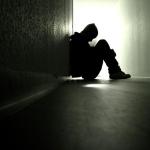 In one week, a friend lost his 22-year-old sister, another lost her nephew who was to be in a wedding in two weeks, and another became a grandfather to a non-viable baby who would live no longer than a few hours after birth. Two more friends lost their dogs (one to old age and one to the front bumper of a speeding pick-up truck) and another had their family cat run away. All these friends read this e-zine.
In one week, a friend lost his 22-year-old sister, another lost her nephew who was to be in a wedding in two weeks, and another became a grandfather to a non-viable baby who would live no longer than a few hours after birth. Two more friends lost their dogs (one to old age and one to the front bumper of a speeding pick-up truck) and another had their family cat run away. All these friends read this e-zine.
Incredible sadness is certainly possible. And it seems like sometimes it comes in waves. The vortex of all these unexpected occurrences to which the overwhelming emotion is sadness got me thinking. What is “sad”?
Having examined this for the past two weeks as I attempted to pull myself out of the funk normally associated with “sad”, several things became clear.
First, I concluded, “sad” is an emotion. As with “angry”, “confused”, “hurt”, “afraid”, “disgusted”, and “frustrated”, feeling “sad” is often associated with some unexpected event.
We feel angry when something we expect either doesn’t occur or someone makes the opposite occur.
We are afraid when we predict that something bad will occur.
We feel joyful when something we hope to see happen, happens.
We are disgusted when some action violates our standards of appropriate.
All these emotions are propagated by some type of judgment based on expectation.
My mentor, Jut Meininger, once conferred on me the wisdom that the foundation of all our frustration is our expectation. Give up the expectation and you’ll eliminate frustration. Easier said than done, Jut.
Expectation, it occurs to me, is a judgment. It is my judgment that all pregnancies should end with a cooing, gurgling, pooping baby. When that expectation is not met, I’m sad (or scared, angry, frustrated… pick one). Note the word “should” in there? “Should” is a cornerstone of judgment (and hence expectation). Eliminate the “should” and we take away our basis for judging.
My 22-year-old sister “should” be on the other end of the phone when I call. Children “should” outlive their parents. People in wedding parties “should” be handsome and happy and present on the joyous day. When these things don’t happen, we get caught up in our feelings. Certainly “sad” is one that can happen in the above cases.
I know from experience that I can choose to not fear. The quicker I choose not to be afraid (riding as a co-driver in a rally car, for example), the more effective I can be. Fear consumes brain power. Thinking about all the negative that could happen steals from my ability to be present and perform at the top of my game. So it is with frustration, anger, confusion, etc. So it is with sadness.
In a case similar to my friend’s, a facebook drama played out this week.
I suspect the family early on had made a decision, a choice to not be sad. A baby with a genetic defect, doomed to live only a few hours, was carried to full term and welcomed into this world. Instead of mourning and blaming and all the other things I could see them doing, they chose to welcome their son into the world, surround him with love, have him christened, and then say goodbye. He died peacefully in his mother’s arms. I am almost crying typing this. I bet you are too. I can’t imagine having to deal with this. Yet this young couple faced it, chose the path of “not sad”, and survived, perhaps even thrived. Young Shane Haley was born October 9th at 2:25, and he died at 6:45. Not a long life, but one completely and totally filled with love and warmth due to a choice his parents made for the hand that was dealt them.
Can I choose to not be sad? Angry? Frustrated? Repulsed? I believe I can when I manage my expectations. When I remove the “should” from my library of life rules, I’ve lost the basis from which to judge. I give up the expectations and I avoid all the negative emotions attached to their absence.
Suffered a loss lately? Feel sad about it? If you don’t like that feeling, you can choose a different one. The Haleys did.




Well said Kim